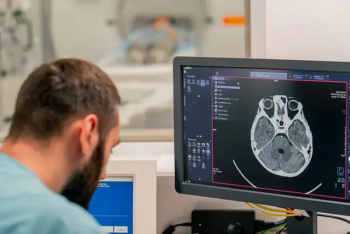
On Making Efficient Schedules
What’s the best way to get people what they want?
I was a Chief Resident during the third year of my radiology training program. Something of an honor-I have a framed certificate for it, in addition to the document received for completing the program itself.
Lest I develop any excessive pride over the matter, the two are almost identical (except one sports the word “Chief”)-I have to hang them on different walls or it just looks redundant. Also, we only had four rezzies per year, so with two Chiefs at a time, we each had a 50-50 shot at the post.
Other radiology departments, especially larger ones, probably gave their Chiefs more power and responsibility, but our biggest task was scheduling. In particular, making sure all “on-call” shifts were filled. So, one day, my co-Chief and I got some pizza and beer and got down to it.
Differing interests and talents being what they are, I’m sure folks regard such tasks with a full spectrum of attitudes. Dread at the scope and complexity of it all. Aggravation at its lengthy tedium. Bland indifference at the uninteresting, thankless work. A quiet satisfaction at getting the project done.
I found I rather enjoyed the process, as it resembled a puzzle with a bunch of pieces to fit together. I’d certainly seen that others could throw a schedule together in a slapdash sort of way, getting all shifts covered without really caring about little things like fairness (everybody having the same number of shifts, for instance) and accommodating the requests of various individuals. Addressing such points would mean a more painstaking process-but to me, that only made it seem interesting, challenging, and downright worthwhile to do properly.
Some of what we did differently from those before us probably escaped the notice of the other residents, and even attendings. I’m sure they noticed, however, that we chose to do the entire year’s schedule at the outset, rather than six months at a time as had been the norm before. There were probably reasons for having done things that way-for instance, if a resident joined or left the program during the year, you’d never have to re-do more than six months of scheduling at a time. As far as we were concerned, though, it was nicer for people to be able to plan out their lives for a full year in advance.
Some items were downright nitpicky of me, but satisfying nonetheless. For instance, ever since I knew 24-hour callshifts were a thing, it had seemed wrong to me that some unlucky housestaff would wind up working the night that daylight savings ended-thus, working 25 hours because the clocks shifted back. Meanwhile, others would work the night that the clocks shifted forward, covering an hour less. I, thus, made it a policy that whoever got that night in the autumn should get its counterpart in the spring.
Other things I did were of interest to a larger audience. For instance, being that our residency program was on the smaller side, each resident had a fair number of weekend shifts to cover. Some folks were of a mind to diminish the number of weekends that were thus ruined, by having their Friday and Sunday shifts coupled: Work the Friday overnight, recover Saturday, and then do it again on Sunday. If the schedule just evenly distributed weekend shifts, residents who wanted to match their Fridays and Sundays would have to go around and search for others with whom they could swap shifts.
It, therefore, made sense to me to start out, before making the schedule, asking around: Who wanted to do the Friday-Sunday combo thing, and who didn’t. For those who did, we’d make a point of coupling their Fridays and Sundays as we drew up the schedule. Presto: A bunch of shift-swapping no longer needed to happen (which conveniently kept the posted calendar of call-shifts cleaner as there were far fewer names crossed out and written in on the thing).
Having long since left the academic environment and worked in rad groups large, small, and in-between, I’ve seen scheduling of vastly differing scales and complexities in the “real world.” Some of it practically requires the usage of computer software to keep track of things, lest coverage-holes or conflicts result.
Thus far, at least, human hands still need to be involved. Not uncommonly, the human owning those hands groans at the thought of doing the scheduling, regarding it as an unpleasant chore. They might consider indulging preferences and requests of the rads working the schedule to be an added burden, not worth the effort or even impossible to accommodate.
Why not make sure that the person(s) involved is genuinely interested in the process? Even if it means recruiting someone from the ranks to handle the task. Harness that motivation, and the folks who proceed to work the assignments in that schedule might find that they’re liking it better - and all sorts of unexpected efficiencies might result in the process.
Newsletter
Stay at the forefront of radiology with the Diagnostic Imaging newsletter, delivering the latest news, clinical insights, and imaging advancements for today’s radiologists.












